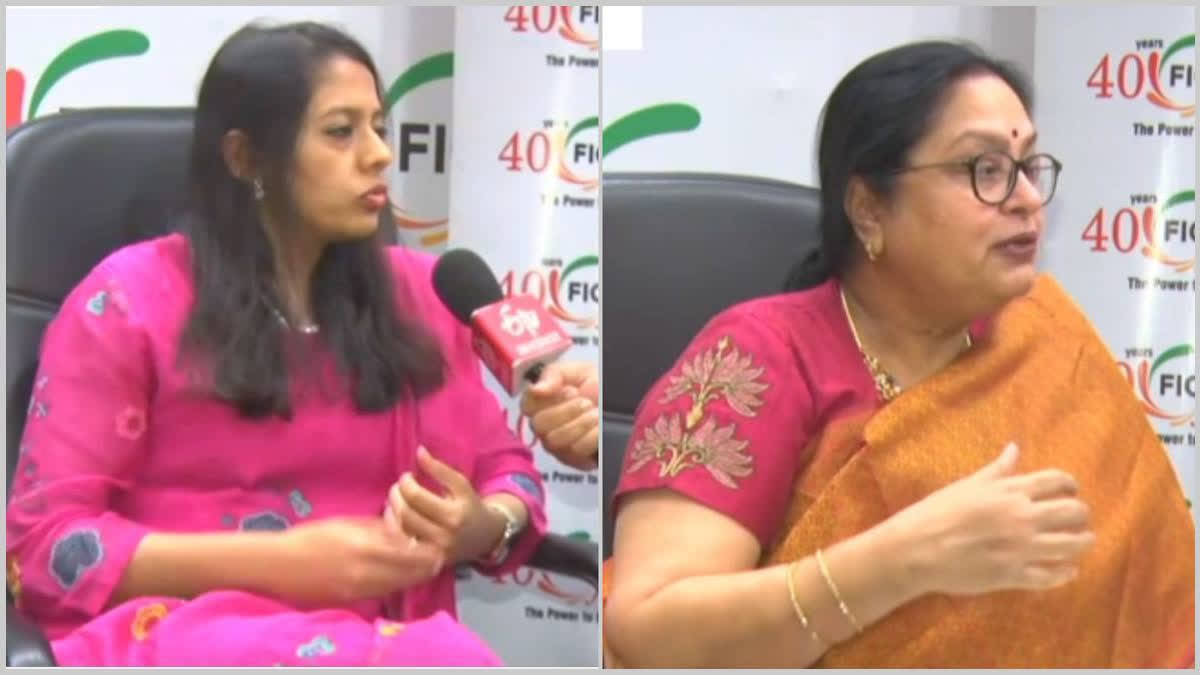ETV Bharat's Saurabh Shukla speaking to chairperson of FLO Startup wing Dr Aarti Gupta and FLO President Sudha Shivkumar New Delhi:The Federation of Indian Chambers of Commerce and Industry, FICCI's Ladies' Organisation FLO is releasing a white paper on March 27 focusing mainly on women whose contributions are not recognised unlike those of men in society. Speaking to ETV Bharat, FLO President Sudha Shivkumar said there is an emerging global trend where women's contributions, especially those who stay at home and care for everything, are recognised. She also stressed the need for overall policy changes and government support to boost the care economy.
Sudha Shivkumar said, “For, too, long, the vital role of caregivers, particularly homemakers, has been relegated to the shadows of economic statistics. This essential industry, responsible for nurturing families and fostering well-being, operates largely outside Gross Domestic Product (GDP).”
“Including the care economy in GDP calculations isn't just a political move, it's a necessary step towards acknowledging these caregivers' immense contribution. Current methods fail to capture the value of unpaid care work, skewing our understanding of a nation's true economic output,” she added.
The chairperson of FLO’s Startup wing, Dr Aarti Gupta, told ETV Bharat, "If we utilise this as a potential workforce for a nation, significant change can be expected. According to her, overall policy change and subsidy support are required from the government."
Research suggests that including this sector in GDP could lead to a significant jump of several percentage points. This wouldn't just be a statistical adjustment; it would be a powerful statement of recognition for the tireless work done by caregivers, she said.
The inclusion of the care economy goes beyond economic figures. It's a step towards gender equality. Women traditionally shoulder a disproportionate share of caregiving responsibilities. By valuing this work in national statistics, we acknowledge the societal contribution often overlooked, added Aarti Gupta.
FLO further advocates that recognising the care economy opens doors to incentivise and elevate the sector. Formalisation and professionalisation can lead to better working conditions, training opportunities and potentially, social security benefits for caregivers.
According to the white paper, this inclusion wouldn't just be an economic recalibration but a catalyst for social change. It would empower caregivers, promote equal participation in the workforce and ultimately create a more just and equitable society. "By recognising the caregiving economy, we not only see a more accurate picture of our national output, but we also pave the way for a future where the essential work of nurturing our communities is valued and supported."
